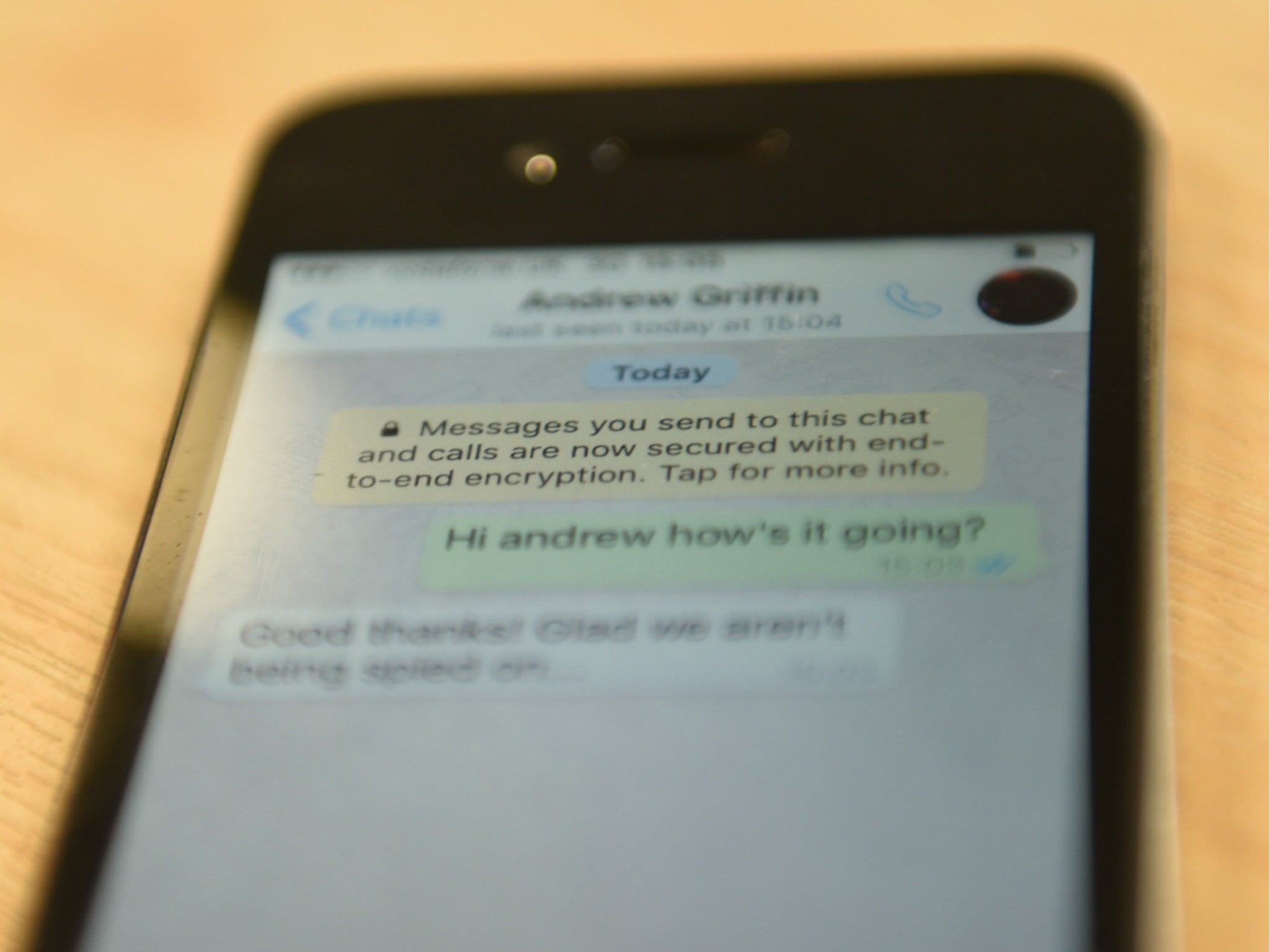'Real people' don’t care if chat apps like WhatsApp keep their messages private if they get new features, says Amber Rudd
The claim has been called 'dangerous and misleading' by critics

"Real people" aren't really interested in security features that stop the government and criminals reading their messages, according to Home Secretary Amber Rudd.
The Government should be allowed to look at people's messages and break through the security that keeps them hidden, she has written.
Most people won't be concerned about that because they primarily use apps like WhatsApp and iMessage for their "features", she writes, and not because of the technology they incorporate to keep messages safe.
Terrorists are using private chat apps to co-ordinate attacks and must be stopped, she writes.
But those same apps are used by hundreds of millions of people each day, with the technology also keeping messages safe from the view of hackers and other malicious agents.
The government supports the use of strong encryption and does not want to ban end-to-end encryption, Ms Rudd says.
But it wants a way into reading specific conversations, a plan that most experts have said is completely unworkable.
Technology companies say that such a system is impossible. End-to-end encryption works by ensuring that only the sender and recipient of a message can read it – meaning it would not be possible for tech firms to give government access to specific messages, even if they wanted to.
Ms Rudd took on that argument and said that might be true "in theory" but that "the reality is very different". She did not make clear what reality she was referring to, or how she intended to get around that central problem of encrypted communications.
"I know some will argue that it's impossible to have both – that if a system is end-to-end encrypted then it's impossible ever to access the communication," she wrote in a piece for The Daily Telegraph. "That might be true in theory. But the reality is very different."
She went on to write that people didn't really want encrypted messaging apps anyway, and that they would prefer to use software with more features.
"Real people often prefer ease of use and a multitude of features to perfect, unbreakable security. So this is not about asking the companies to break encryption and create so called 'back doors'," she wrote.
"Who uses WhatsApp because it is end-to-end encrypted, rather than because it is an incredibly user-friendly and cheap way of staying in touch with friends and family?"
It isn't clear what Ms Rudd was referring to when she suggested there was a trade-off between ease of use and features, and security. Almost every major chat platform – including Apple's iMessage – uses encryption in a way that is automatic and doesn't require anything particular of its users.

Some chat providers like Google choose not to enable end-to-end encryption by default because it means it cannot scan chats and allow its AI to read them. But WhatsApp never had such features, and no other features were broken when WhatsApp added encryption, a development that came relatively recently.
The Open Rights Group said Ms Rudd's claims were "dangerous".
"“The suggestion that real people do not care about the security of their communications is dangerous and misleading," said Jim Killock, the group's executive director.
"Some people want privacy from corporations, abusive partners or employers. Others may be worried about confidential information, or be working in countries with a record of human rights abuses. It is not the Home Secretary’s place to tell the public that they do not need end-to-end encryption.
"Amber Rudd must be absolutely clear on what co-operation she expects from Internet companies. She is causing immense confusion because at the moment she sounds like she is asking for the impossible. She must give the public a good idea of the risks she wants to place them under.”
Join our commenting forum
Join thought-provoking conversations, follow other Independent readers and see their replies
Comments
Bookmark popover
Removed from bookmarks